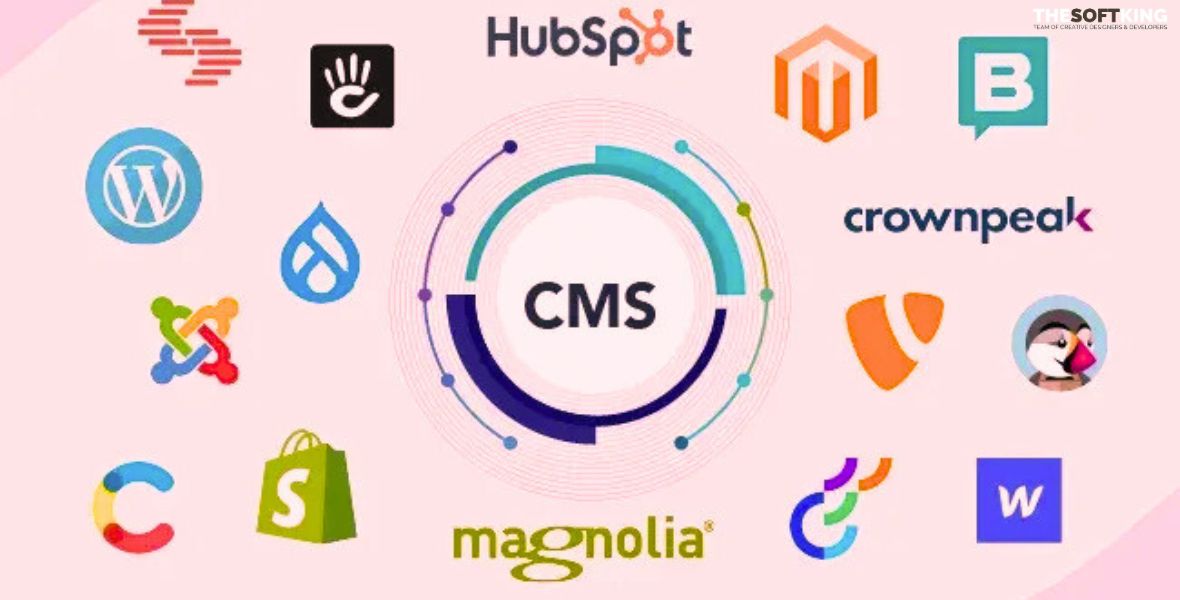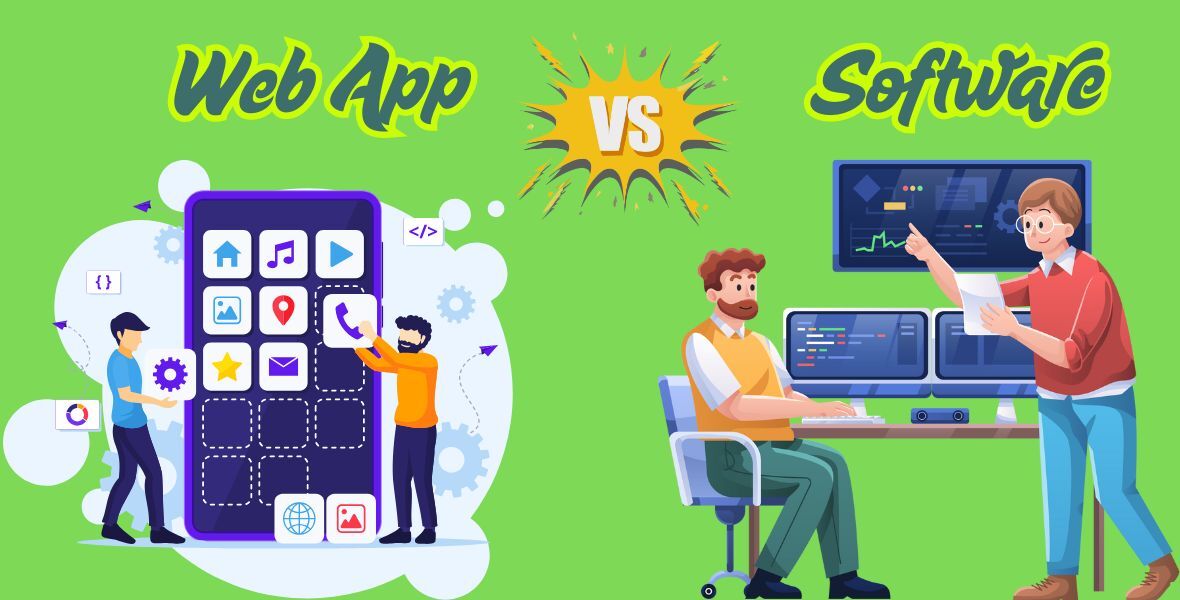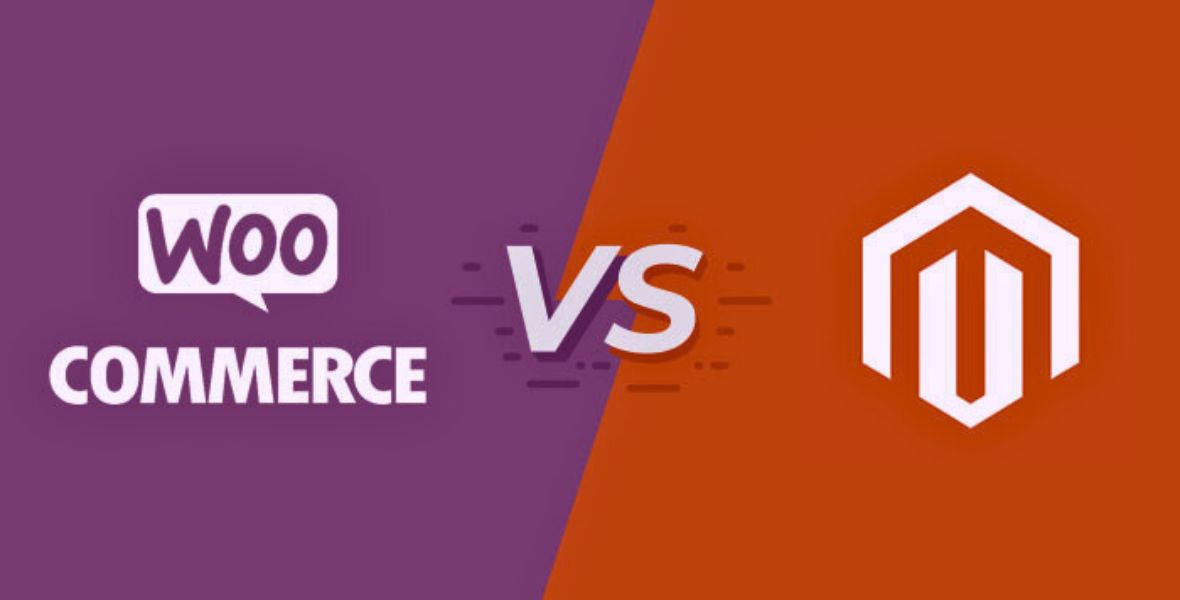Best CMS Platforms for Websites, Ecommerce, and SEO in 2025

Introduction
Your website needs a strong foundation to succeed. A content management system shapes how you create, manage, and grow your online presence. With so many options, choosing the right one feels overwhelming, but it’s critical for your business goals.The best CMS platforms simplify website management, boost SEO, and support diverse needs like blogging or ecommerce. Platforms like WordPress, Shopify, and Drupal offer solutions tailored to different industries, ensuring your site performs at its peak.
This article explores top CMS platforms, their features, and how they fit specific use cases. From our decades of experience working with over 10 CMS platforms at THESOFTKING, I’ll guide you through selecting the perfect system for your website, whether you’re a beginner or an enterprise.
Why You Need a Content Management System
A CMS lets you create and manage website content without coding. Imagine updating your site’s pages or products in minutes. That’s the power of a website management system. It saves time and empowers non-technical users to maintain a professional online presence.What Makes a CMS Essential for Your Website?You can publish blog posts, edit pages, or manage products easily with a CMS. These platforms streamline workflows, letting teams collaborate efficiently. A good CMS for websites also ensures your site stays secure, scalable, and user-friendly, which is critical for growth.
How a CMS Boosts Your Business
Using a website builder with CMS functionality enhances your site’s performance. You can optimize content for search engines, integrate with tools like Google Analytics, and ensure mobile responsiveness. This flexibility helps attract visitors and convert them into customers.Key Features to Look for in a CMS
When choosing a CMS for website building, prioritize ease of use, SEO tools, and customization options. Security features protect your site, while scalability supports growth. Integration with third-party tools, like CRMs or payment gateways, is also vital for seamless operations.
Top CMS Platforms for Different Needs
I’ve explored various platforms to identify the best CMS systems for 2025. Each excels in specific areas, like blogging,eCommerce, or enterprise solutions. Let’s examine the top website content management systems and how they meet your needs.WordPress: The Most Popular CMS
WordPress powers over 40% of websites globally. Its flexibility makes it a top CMS for developers, bloggers, and businesses. You can create anything from a simple blog to a complex ecommerce site using its vast plugin ecosystem.Why WordPress Stands Out
You get thousands of themes and plugins for customization. WordPress is open-source, so it’s free to use, though you’ll need hosting and a domain. Its community support is unmatched, offering solutions for any issue you face.Best CMS for Blogging
For bloggers, WordPress is the best CMS blogging platform. Its intuitive editor simplifies content creation. Plugins like Yoast SEO help optimize posts, ensuring your blog ranks higher on search engines and attracts more readers.WordPress for Ecommerce
With WooCommerce, WordPress becomes a powerful eCommerce CMS platform. You can manage products, payments, and shipping effortlessly. It’s ideal for small to medium businesses, though large enterprises may need more advanced solutions.SEO Capabilities of WordPress
wordPress excels as the best CMS platform for SEO. Plugins provide tools for meta tags, sitemaps, and keyword optimization. You can fine-tune your site’s SEO settings to improve visibility on Google and other search engines.Shopify: The Best Ecommerce CMS Platform
Shopify simplifies running an online store. You don’t need technical skills to set up a shop, manage inventory, or process payments. It’s a top choice for businesses seeking the best CMS platform for ecommerce.Why Choose Shopify for Your Store?
Shopify offers built-in tools for product management and sales analytics. You can integrate with Amazon, eBay, and social media platforms. Its templates are mobile-friendly, ensuring a smooth shopping experience for customers.Shopify’s SEO Features
As a strong contender for the best ecommerce CMS for B2B platforms, Shopify provides SEO tools like customizable URLs and meta descriptions. These features help your store rank higher, driving more organic traffic to your products.Scalability for Growing Businesses
Shopify scales with your business. Whether you’re a small startup or a large retailer, it handles high traffic and large product catalogs. Plans start at $39 per month, with enterprise options for bigger operations.Squarespace: Best for Creative Professionals
Squarespace shines for creative management in CMS platforms. Its stunning templates are perfect for portfolios, blogs, or small business sites. You don’t need design skills to create a visually appealing website.Why Squarespace Appeals to Creatives
You get drag-and-drop editing and mobile-optimized templates. Squarespace’s built-in SEO tools, like clean URLs and meta tags, make it a good CMS website for small businesses prioritizing aesthetics and simplicity.Limitations of Squarespace
While Squarespace is user-friendly, it lacks the flexibility of WordPress. You may struggle with advanced customizations or scalability for complex sites. It’s best suited for creatives who value design over extensive functionality.Integration and Analytics
Squarespace integrates with Google Analytics and offers built-in analytics. You can track visitor behavior and optimize content. This makes it a solid website management program for small-scale projects with creative needs.Drupal: A Powerhouse for Enterprises
Drupall is a top enterprise CMS platform for large organizations. Its flexibility and security make it ideal for complex websites, such as government portals or corporate sites handling vast amounts of data.Why Drupal Excels for Enterprises
You gain precise control over content structures with Drupal. Its modular system supports custom post types and multilingual sites. However, it requires technical expertise, making it less beginner-friendly than other platforms.Security and Scalability
Drupal’s strong security features protect sensitive data, a must for enterprises. It handles high traffic and large datasets, making it one of the best CMS platforms for different types of sites with complex needs.SEO and Customization
Drupal offers advanced SEO settings, including granular control over metadata and URLs. You can customize every aspect of your site, ensuring it aligns with your brand and performs well on search engines.HubSpot CMS Hub: Marketing-Focused Solution
HubSpot CMS Hub integrates with its marketing and CRM tools, making it a top content management software for businesses focused on inbound marketing. You can create personalized, SEO-optimized websites with ease.Why HubSpot Stands Out
Its drag-and-drop editor simplifies website creation. You get AI-driven content tools and personalization features to engage visitors. HubSpot’s analytics help you track performance and refine your marketing strategy.Best for Creative Personalization
HubSpot excels in creative personalization options in CMS platforms. You can tailor content based on visitor behavior or location, boosting engagement. This makes it a top choice for marketers seeking dynamic creative optimization in CMS.Pricing and Limitations
HubSpot’s Professional plan starts at $360 per month, which may be costly for small businesses. It’s less flexible than WordPress for developers but ideal for teams needing integrated marketing tools.No-Code CMS Platforms for Beginners
If coding isn’t your strength, no-code CMS platforms simplify website building. You can create professional sites without technical skills. These platforms are perfect for startups, small businesses, or solo entrepreneurs.Wix: Best No-Code CMS Platform
Wix offers a drag-and-drop builder for easy website creation. You can build blogs, portfolios, or ecommerce sites without coding. It’s one of the best no-code platforms with built-in CMS for agency workflows.Why Wix is Beginner-Friendly
You get customizable templates and a user-friendly interface. Wix’s free plan lets you test the platform, though premium plans start at $16 per month. It’s ideal for small businesses needing a quick setup.SEO and Ecommerce Features
Wix provides SEO tools like meta tags and sitemaps, making it a good CMS for websites. Its ecommerce features support small online stores, though it’s less robust than Shopify for large-scale operations.Limitations of Wix
Wix lacks advanced customization compared to WordPress or Drupal. Switching templates after building your site is tricky. It’s best for simple projects where ease of use is a priority.Webflow: Design Freedom Without Coding
Webflow combines visual design with CMS functionality. You can create custom websites without coding, making it a favorite among designers seeking the best platform for creative management in CMS.Why Webflow Appeals to Designers
You control CSS and HTML visually, offering design flexibility. Webflow’s responsive templates ensure your site looks great on all devices. It’s perfect for creatives who want professional results without coding.SEO and Scalability
Webflow offers SEO tools like customizable URLs and metadata. It scales well for small to medium sites but may require technical knowledge for complex projects, unlike Wix’s simplicity.Integration Capabilities
Webflow integrates with tools like Zapier and Google Analytics. You can streamline workflows and track performance, making it a strong CMS site builder for design-focused businesses.
Headless CMS: The Future of Content Management
Headless CMS platforms separate content from design, offering flexibility for developers. You can deliver content across websites, apps, or devices, making them ideal for modern, multi-channel strategies.Contentful: Flexible Headless CMS
Contentful is a leading headless CMS for website development. You manage content in one place and deliver it anywhere via APIs. It’s perfect for businesses needing multi-platform content delivery.Why Choose Contentful?
You get a user-friendly interface for content creation and API-first delivery. Contentful supports multiple languages, making it ideal for global businesses. It’s a top CMS for developers seeking flexibility.SEO and Personalization
Contentful offers tools for SEO optimization and personalized content delivery. You can create dynamic experiences, making it one of the best platforms for dynamic creative optimization in CMS.Scalability for Enterprises
Contentful scales for large projects, supporting complex content needs. It’s used by brands like Spotify for seamless content management across platforms, ensuring consistency and performance.Prismic: Headless CMS for Marketers
Prismic’s headless page builder lets you create reusable content slices. You can assemble pages quickly, maintaining brand consistency. It’s a great CMS for websites needing fast deployment.Why Prismic is Unique
You build components like headers or CTAs, and marketers combine them to create pages. Prismic supports blogs, ecommerce, and portfolios, offering flexibility for various site types.Integration and SEO
Prismic integrates with tools like Gatsby for fast websites. Its SEO features, like metadata control, make it a strong website CMS platform for marketers focused on performance.Best for Rapid Content Creation
Prismic’s simplicity speeds up content creation. You can launch campaigns quickly, making it one of the top CMS providers with personalization features for dynamic marketing needs.Choosing the Right CMS for Your Business
Selecting a CMS depends on your goals, budget, and technical skills. You need to evaluate what features matter most, whether it’s SEO, ecommerce, or scalability. Let’s explore how to make the right choice.Factors to Consider When Choosing a CMS
Start by defining your website’s purpose. A blog needs a CMS for blogging, while an online store requires ecommerce features. Budget, ease of use, and integration capabilities also play a role in your decision.Technical Expertise and Ease of Use
If you’re a beginner, choose a user-friendly CMS like Wix or Squarespace. Developers may prefer WordPress or Drupal for their customization options. Match the platform to your team’s skills.Budget and Pricing
Some CMS platforms, like WordPress, are free but require hosting costs. Others, like HubSpot, have high subscription fees. Compare CMS systems to find one that fits your budget.Scalability and Growth
Your CMS should grow with your business. Shopify and Drupal handle high traffic, while Wix may struggle with complex sites. Choose a platform that supports your long-term goals.Comparing CMS Platforms for Specific Needs
Different sites require different CMS features. Let’s break down how major CMS systems cater to specific use cases, ensuring you pick the best website CMS for your project.Best CMS for SEO
WordPress and Drupal top the list as the best CMS platforms for SEO. Their plugin and modules offer precise control over metadata, sitemaps, and URLs, boosting your site’s search engine rankings.Best CMS for Ecommerce
Shopify and WooCommerce are the best ecommerce CMS platforms. Shopify simplifies store management, while WooCommerce offers flexibility for WordPress users. BigCommerce is also strong for B2B ecommerce.Best CMS for Enterprises
Drupal and Adobe Experience Manager are top enterprise CMS platforms. They handle complex content needs, offer strong security, and integrate with enterprise tools like SAP for seamless operations.Best CMS for Blogging
WordPress and Ghost are the best CMS blogging platforms. WordPress offers extensive plugins, while Ghost focuses on simplicity and speed, ideal for content-focused blogs.Unique Insights from Discussions
Reddit users share real-world experiences with CMS platforms, offering insights competitors often miss. I’ve gathered feedback to help you understand what users love and dislike about popular CMS systems.WordPress: Community Feedback
Users on Reddit praise WordPress for its flexibility and plugin ecosystem. However, some mention security risks if plugins aren’t updated. Regular maintenance is key to keeping your site secure.Common Pain Points
Many users find WordPress’s learning curve steep for beginners. Outdated plugins can slow your site or cause compatibility issues. Choosing reliable hosting solves these problems.Why Users Stick with WordPress
Despite challenges, Redditors love WordPress for its customization. You can build any site type, from blogs to stores, making it a versatile CMS for website development.Shopify: Ecommerce Insights
Reddit users call Shopify the best CMS platform for ecommerce due to its ease of use. Some complain about limited SEO customization compared to WordPress, but its built-in tools simplify store management.What Users Say About Costs
shopify's pricing can feel high for small businesses, Reddit users note. However, its scalability and support make it worth the investment for growing online stores.Integration with Other Tools
Users appreciate Shopify’s integrations with platforms like Amazon and Instagram. This makes it a top choice for businesses selling across multiple channels, enhancing customer reach.Drupal: Enterprise Perspectives
Reddit highlights Drupal’s power for complex sites but warns about its complexity. You need skilled developers to maximize its potential, which can increase costs for small teams.Security and Performance
Users commend Drupal’s security, ideal for enterprises handling sensitive data. Its ability to manage large datasets makes it a top CMS for websites with heavy traffic.Community Support
Drupal’s community is active but smaller than WordPress’s. Reddit users suggest leveraging forums and THESOFTKING’s development services to navigate Drupal’s steeper learning curve.CMS Platforms and SAP Integration
If your business uses SAP, you want a CMS that integrates smoothly. Some platforms excel at connecting with SAP, streamlining operations for enterprise users.Which CMS Works Best with SAP?
Adobe Experience Manager and Sitecore are top CMS providers with personalization features that integrate well with SAP. They support complex workflows, ensuring seamless data flow between systems.Adobe Experience Manager
You can connect Adobe Experience Manager with SAP for personalized customer experiences. Its AI-driven tools analyze data, making it a strong choice for enterprises using SAP.Sitecore’s Integration Capabilities
Sitecore blends content, commerce, and personalization with SAP integration. You can manage customer journeys across channels, making it one of the best enterprise CMS platforms.Why SAP Integration Matters
Integrating your CMS with SAP improves efficiency. You can manage product data, customer interactions, and marketing campaigns in one place, saving time and reducing errors.How to Choose a Content Management System
Choosing the right CMS feels daunting, but it’s simple when you focus on your needs. I’ll guide you through the process to ensure you pick the best CMS for your website.Assess Your Website’s Purpose
Ask yourself what your site needs. A blog requires strong content tools, while an ecommerce site needs payment and inventory features. Define your goals to narrow your options.Evaluate Technical Requirements
If you lack coding skills, choose a no-code CMS like Wix. Developers can opt for Drupal or Contentful for advanced customization. Match the platform to your team’s expertise.Consider Long-Term Costs
Free platforms like WordPress require hosting and plugin costs. Paid CMS like Shopify or HubSpot have predictable fees. Budget for maintenance and upgrades to avoid surprises.Test Before Committing
Most platforms offer free trials or demos. Test their interfaces and features to ensure they meet your needs. This helps you avoid costly migrations later.Compare CMS Systems for Your Goals
A content management system comparison reveals strengths and weaknesses. WordPress offers flexibility, Shopify excels in ecommerce, and Drupal suits enterprises. Choose based on your priorities.Look at CMS Website Examples
Explore sites built on each CMS. WordPress powers news sites like BBC, while Shopify runs stores like Allbirds. These examples show what each platform can achieve.Check Community and Support
A strong community, like WordPress’s, provides free resources. Paid platforms like Shopify offer 24/7 support. Ensure your CMS has reliable help when you need it.FAQ: Common Questions About CMS Platforms
What is the best CMS platform for beginners?
Wix and Squarespace are the best CMS platforms for beginners. Their drag-and-drop editors make website creation easy, requiring no coding skills.Which CMS is best for SEO?
WordPress is the best CMS for SEO. Its plugins, like Yoast,Rank Math offer advanced tools for optimizing metadata, URLs, and sitemaps to boost search rankings.What is the best CMS for ecommerce?
Shopify is the best ecommerce CMS platform. It simplifies store management, supports multiple payment gateways, and scales for small to large businesses.Are no-code CMS platforms effective?
Yes, no-code CMS platforms like Wix and Webflow are effective. They allow quick website creation and management without technical expertise, ideal for startups.Which CMS is best for enterprise sites?
Drupal and Adobe Experience Manager are top enterprise CMS platforms. They offer strong security, scalability, and integration for complex business needs.Take Your Website to the Next Level with THESOFTKING
Ready to build a stunning website that drives results? THESOFTKING offers expert CMS development services to bring your vision to life. Whether you need a WordPress blog, a Shopify store, or a Drupal enterprise site, our team delivers customized solutions.contact SOFTKING today to create a high-performing, SEO-optimized website that grows your business!






